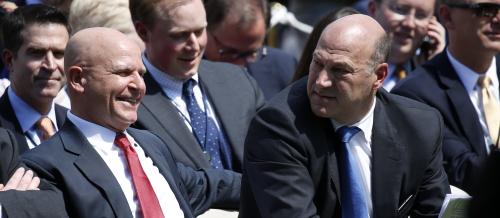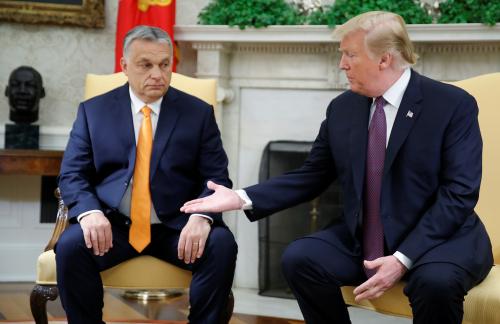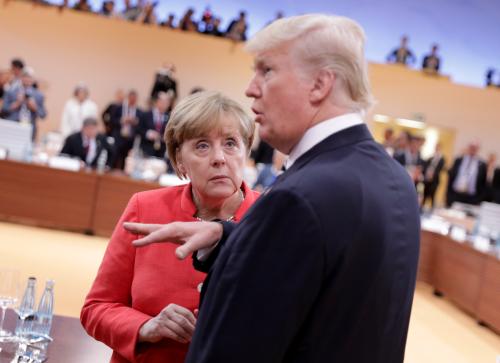This piece was originally published in the Atlantic Council’s “Europe in 2022: Alternative Futures” report.
The European project is at an inflection point, beset by a multitude of crises that could hardly have been imagined a few years ago in their breadth and complexity. Brexit, the rise of populism and illiberal authoritarianism, a continuing influx of migrants from Middle Eastern and African war zones, the backsliding of the Balkans, Turkey swerving between East and West, a revisionist Russia fomenting insecurity in Europe’s neighborhood and even within the boundaries of the EU and NATO: all these are historic challenges. They represent the single largest test of our collective (and perhaps individual) ability to respond to have come before us in a lifetime. They will test every single level of the orders we live in simultaneously: from our social contracts, our markets, and our institutions within the nation state, to our alliances and the European Union itself. Part of the challenge may consist simply in coping and managing forces that are bigger than we are; but at least equally important, we need to understand how to adapt ahead of the curve, so as to be able to shape our strategic environment rather than be shaped (or undone) by it. It is a time to brace ourselves, to look to our resilience and our defenses—and to make sure we have our friends at our side.
That is why the new American administration’s mixed messages on Europe, the EU, and NATO are so unsettling. US backing for the Marshall Plan, NATO, and the EU enabled and ensured Europe’s democratic transformation, its prosperity, and its security, and anchored it firmly within the West for seventy years. Even the Obama administration’s less-than-persuasively conceived and executed “pivot to Asia” pales in comparison to the Trump administration’s whipsawing between affirming the US commitment to Europe in one breath and fundamentally questioning it in the next. Of the many ill fortunes besetting the European project at the moment, this is without a doubt the worst.
There can be no question—and indeed it is by now generally accepted in Europe—that the transatlantic relationship has more often than not been one of unhealthy codependency in the past. It needs to be rebalanced by Europe taking on far more responsibility for its own security, including that of its own periphery in the South and East. That includes paying more for its own defense. It also includes fixing some of Europe’s structural economic and fiscal problems, such as youth unemployment, banks with unhealthy balance sheets, lack of infrastructure investment, and, yes, surpluses. More EU-level integration may or may not be a part of this rebalancing; if it happens, it will be motivated not by ideology but by a pragmatic search for better solutions to common problems, such as migration, trade, and security.
Perhaps that will enable Europe to develop a more healthy relationship with America. It would be in the interests of both sides.
The Brookings Institution is committed to quality, independence, and impact.
We are supported by a diverse array of funders. In line with our values and policies, each Brookings publication represents the sole views of its author(s).







Commentary
Op-edEurope in 2022: Alternative futures
March 29, 2017